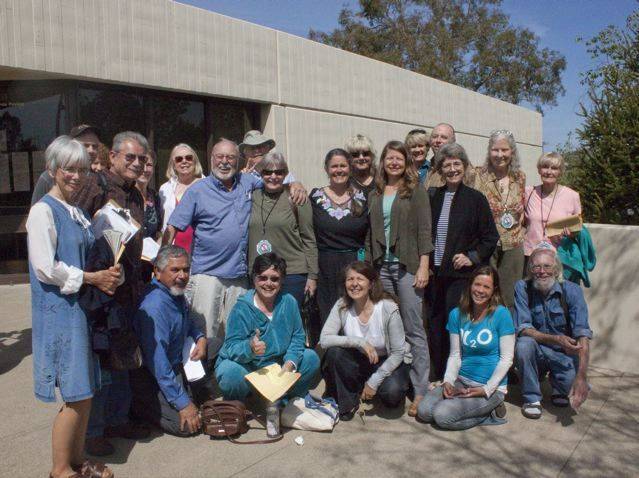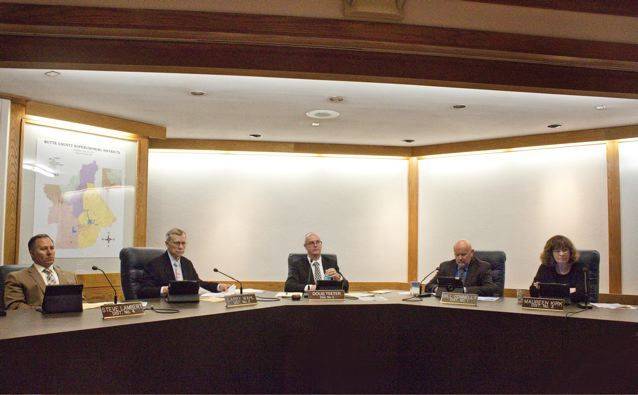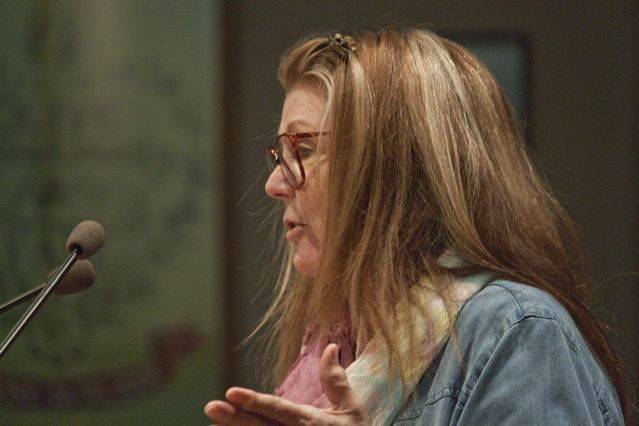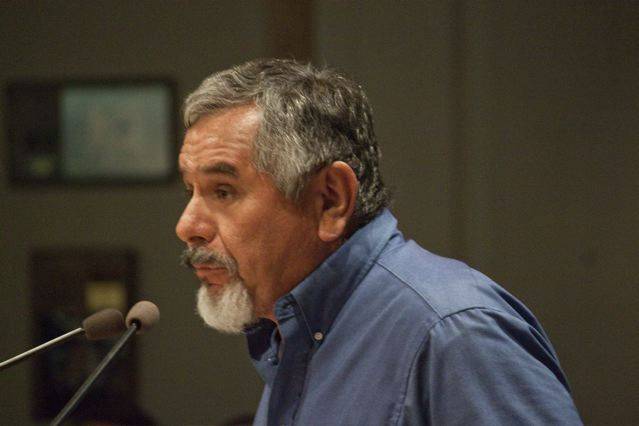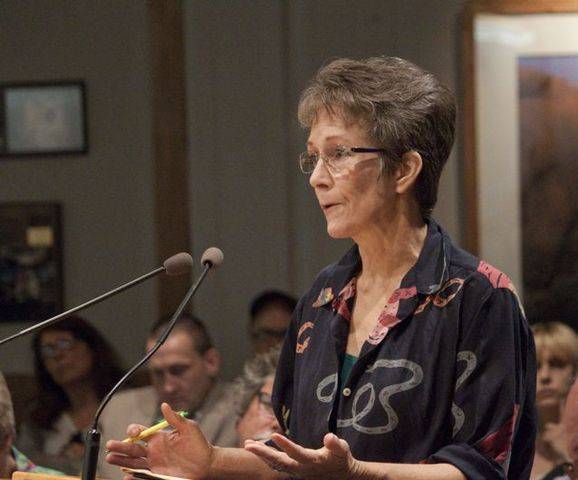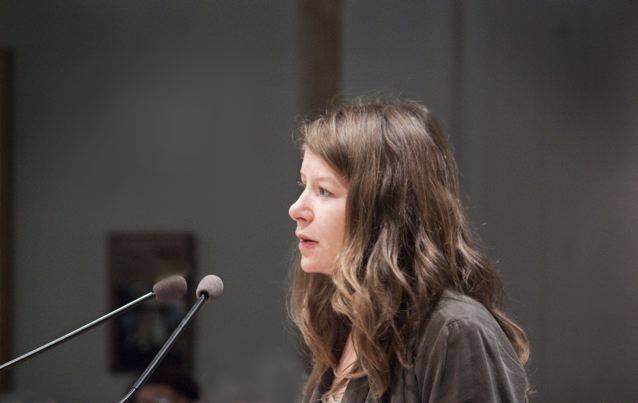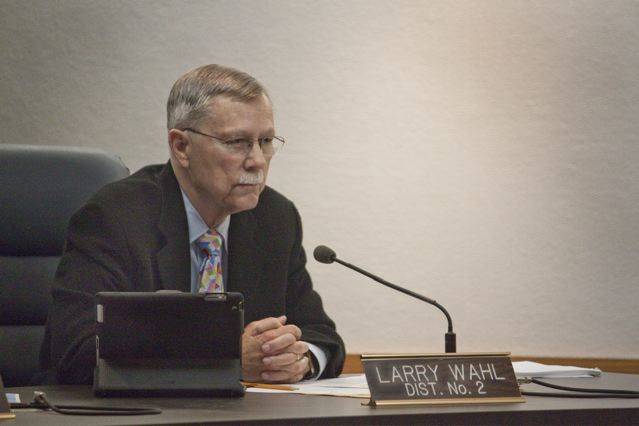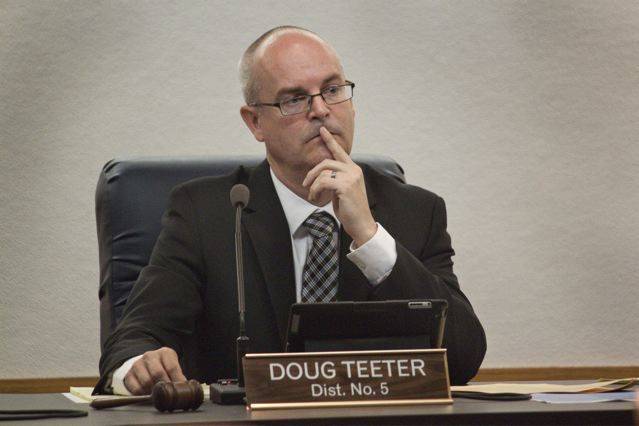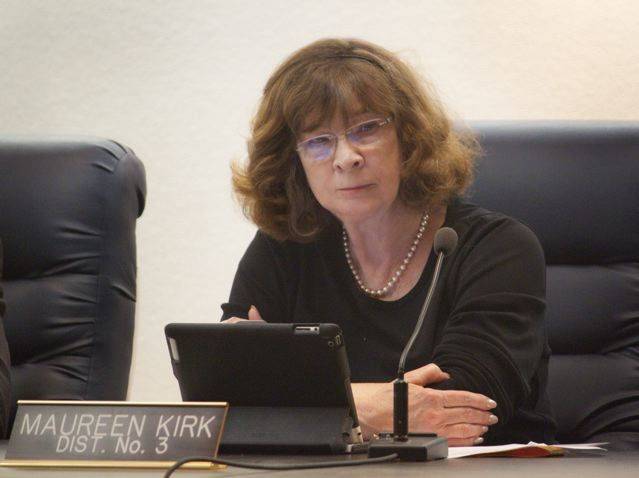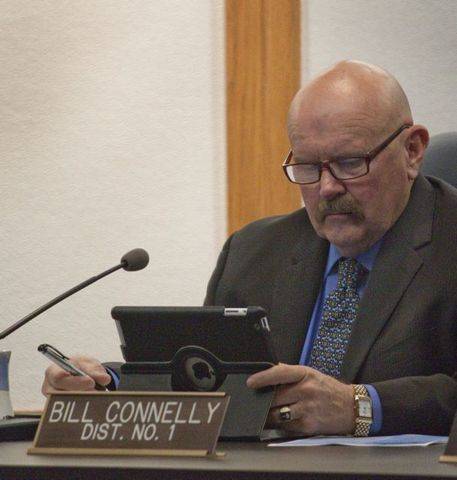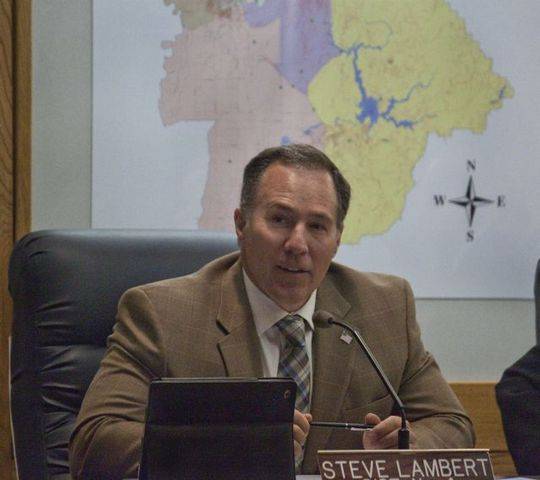by Leslie Layton
A majority on the Butte County Board of Supervisors voted Tuesday to draft an ordinance that would ban fracking, a step that could place this county at the vanguard of a grass-roots movement to halt the practice.
In a surprisingly unscripted move, the supervisors voted 4-1 to consider a comprehensive fracking ban after county staffers research how best this can be done. The vote was applauded by dozens of anti-fracking activists, many of whom had spoken in favor of the more moderate measure that was on the agenda — a recommendation the county amend its zoning code to ensure local oversight of fracking projects.
But after an hour of testimony from audience members, District 4 Supervisor Steve Lambert ended up introducing the motion to ban the practice entirely. “My concern is we’re moving a lot of stuff underneath us [in fracking] that’s holding us up,” Lambert said. “By taking the foundation away, we’ll crumble. In all honesty, I’d favor a ban.”
If the ban ordinance is adopted — it may be up for consideration by summer — Butte could be the first California county to ban hydraulic fracturing, or “fracking,” and perhaps other new well-stimulation techniques. Cities including Los Angeles and states like Vermont have passed moratoriums or bans, and campaigns for ballot initiatives on fracking bans are underway in several California counties, including Butte.
There are no reports of fracking yet in Butte County, which has only 26 active gas wells, some 200 abandoned wells, and hasn’t received a new permit application for well drilling in 25 years. But county staffers said that preemptive action could prevent problems that might arise as drilling technology continues to evolve, and the debate Tuesday in Oroville, the county seat, reflects how quickly antipathy toward fracking has grown in California communities.
Hydraulic fracturing involves drilling thousands of feet into the earth and blasting a mixture that includes large quantities of water and some highly-toxic chemicals into an encased well. In some parts of California’s Central Valley, oil companies are pumping hydrofluoric acid into wells. In either case, the goal is to reach trapped pools of oil or gas by fracturing or dissolving rock formations.
The new techniques have been linked to increased seismic activity and air and water contamination. In south Los Angeles, Environmental Protection Agency staffers were themselves sickened by noxious fumes late last year while they were investigating complaints related to acid fracking at University Park. The Los Angeles City Council has since voted to pass a city-wide moratorium.
South Los Angeles Sen. Holly Mitchell has introduced a new bill to impose a statewide moratorium on fracking.
Fracking in California is regulated by the state’s Division of Oil, Gas & Geothermal Resources (DOGGR), which is in the process of implementing a regulatory bill passed last year by the Legislature. Emergency regulations went into effect Jan. 1, and the bill takes full effect in 2015.
The Butte County Water Commission had recommended the board approve a zoning amendment that would require a conditional use permit for fracking. The thinking was that it would give the county “the ability to look at local conditions” said Paul Gosselin, director of the Butte County Water & Resource Conservation Department.
Some argue that fracking can be done safely. Butte County Supervisor Larry Wahl, the only supervisor to oppose Lambert’s motion, said a ban is a “knee jerk reaction” and fracking has been “done safely in many parts of the country.”
Also speaking in favor of fracking Tuesday was Loretta Torres, a Glenn County landowner who said she rented out 1.5 acres to a Colorado company that has drilled for gas and occasionally fracked the well on her land. Torres said that during seven years the drilling has been problem-free and the company has been conscientious in managing the waste.
Some speakers at the Tuesday meeting, though, said they weren’t confident the state has the resources or will to protect local aquifers and air quality from fracking operations. And Robyn DiFalco, executive director of the Butte Environmental Council, warned that new drilling techniques are making “smaller pockets” of gas — like those in Butte County — “more viable.”
“With a price shift there could be a boom here,” DiFalco said.
Last year, a ChicoSol investigation found incidences of fracking in gas fields in the Northern Sacramento Valley, including 15 fracked wells in Sutter County. One of those wells was missing from the state’s database.
The four supervisors in favor of the ban — Lambert, Bill Connelly, Doug Teeter and Maureen Kirk — seemed swayed by concern for the region’s Tuscan Aquifer or uneasy with chemical disclosure requirements.
Lambert, who presides over the American Hereford Association, said he has rancher friends in the Dakotas struggling with the impacts from the massive fracking boom underway there. Teeter said he’s uncomfortable with the incomplete disclosure of chemicals used in fracking.
Dave Garcia, a Sierra Club leader who has been at the forefront of the local anti-fracking campaign, said he was “extremely surprised” by the vote and warned that the oil industry will respond swiftly in an effort to sway the supervisors before they take a final vote. “A lot of oil people will be coming to Butte County,” Garcia said after the meeting. “We are the first domino to fall, and they’re going to try to put the domino back up.”
Leslie Layton is a freelance writer who publishes ChicoSol. Follow her on Twitter at @ChicoSolNews.

